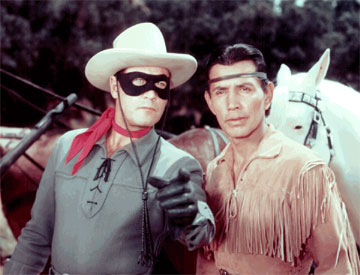« The Most Frequently Disobeyed Sign in the World??? | Home | Cold in Texas »
Creation, Take Two
By Mark D. Roberts | Friday, February 1, 2008
Part 3 of series: Being the People of God
Permalink for this post / Permalink for this series
Genesis 1 begins with an account of creation, one that begins to define what it means to be the people of God (see Wednesday’s post). Then, as if Genesis 1 weren’t there, Genesis 2 includes another story of creation. This second account looks at things from a different perspective, focusing on the experience of the first individual man (adam in Hebrew, from which we get the name Adam).
In Genesis 1 the creation of human beings emphasizes their innate community. Man “as male and female” reflect the image of God. Genesis 2 doesn’t use this “image of God” language, but focuses instead on the prior creation of the man. In light of this man-first-solo creation account, one might be tempted to reject what I said in reference to Genesis 1 about the essentially communal nature of humanity. After all, in Genesis 2 the man is created first, all by himself. But them we come upon on of the more surprising verses in Genesis, not to mention the whole Bible. In Genesis 2:18 God says, “It is not good that the man should be alone; I will make him a helper as his partner [or “helper fit for him” - ESV].” Whereas in Genesis 1 God consistently sees that his creation is good, indeed, “very good” (1:31), in Genesis 2 God recognizes the “not-goodness” of the man’s solitude. Humankind will only be what God intends it to be when people live in community with other people.
I’m not suggesting, by the way, that intentional solitude is always wrong. Jesus himself got away from the crowd to pray. If it was good enough for our Lord, it’s should be good enough for us. But, by God’s essential design, we are meant to share life with others. We are to be members of a people, not isolated individuals who come together only when we have to for reasons of necessity or convenience. “Peopleness” is inherent to our created nature.
In many cultures one almost wouldn’t have to say this. Throughout the world today, billions of human beings understand that they are members of a people. They are a part of something much bigger than themselves, something that gives them identity, meaning, and purpose. But Americans tend to be more individualistic. In fact, “individualism” is near the essence of America as a democratic nation, according Alexis de Tocqueville in his classic study of American culture, Democracy in America. Americans tend to see themselves less as part of a people and more as disconnected individuals. According to de Tocqueville:
Individualism is a mature and calm feeling, which disposes each member of the community to sever himself from the mass of his fellows and to draw apart with his family and his friends, so that after he has thus formed a little circle of his own, he willingly leaves society at large to itself. (Democracy in America, Volume 2, Section 2, Chapter 2).
 We Americans prize the “rugged individualism” of our cultural heroes like Teddy Roosevelt, Superman, and the Lone Ranger (who, curiously enough, was not really alone, but paired with Tonto).
We Americans prize the “rugged individualism” of our cultural heroes like Teddy Roosevelt, Superman, and the Lone Ranger (who, curiously enough, was not really alone, but paired with Tonto).
American Christians naturally read Christian faith through the lens of individualism. As a result, we emphasize personal salvation, personal spirituality, and personal devotion. We can even disparage church involvement as unnecessary because what really matters is that we each have a personal relationship with Jesus Christ.
Don’t get me wrong! I believe that having a personal relationship with Jesus Christ is absolutely essential and absolutely wonderful. Moreover, I am concerned that many churchgoing people might be missing out on this core relationship. But if we read the Bible carefully, we’ll see that a genuine relationship with Jesus Christ is personal and corporate. When we become a child of God through faith, we are adopted into a family with lots of sisters and brothers. We become, not just a person of God, but part of God’s people.
What a difference it would make if individual Christians and churches really believed this! We wouldn’t stop emphasizing one’s personal relationship with Christ. And we wouldn’t downplay the importance of personal discipleship. And we wouldn’t minimize one’s personal ministry in the world. But we’d see how personal relationship, personal discipleship, and personal ministry are essentially connected to corporate relationship, corporate discipleship, and corporate ministry. We’d understand that we’re to live out our faith Christ, not “alone,” but in fellowship with others. Even as it wasn’t good for the man to be alone in the garden, so it is for us.
Topics: Being the People of God |
Comments
Thanks for your willingness to make a comment. Note: I do not moderate comments before they are posted, though they are automatically screened for profanities, spam, etc., and sometimes the screening program holds comments for moderation even though they're not offensive. I encourage open dialogue and serious disagreement, and am always willing to learn from my mistakes. I will not delete comments unless they are extraordinarily rude or irrelevant to the topic at hand. You do need to login in order to make a comment, because this cuts down on spam. You are free to use a nickname if you wish. Finally, I will eventually read all comments, but I don't have the time to respond to them on a consistent basis because I've got a few other demands on my time, like my "day job," my family, sleep, etc.
You must be logged in to post a comment.














